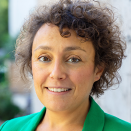Seit 2011 befinden sich der Nahe Osten und Nordafrika im Umbruch. Die Entwicklungen sind, mit wenigen Ausnahmen, alarmierend. Eine selbst für diese konfliktträchtige Region beispiellose Gewaltwelle und innergesellschaftliche, zwischenstaatliche und regionale Konflikte destabilisieren die Region mit direkten Konsequenzen für Europa. Die Dynamik der Ereignisse erfordert regelmäßige Analysen und Debatten. Nur so können sinnvolle lokale sowie deutsche und europäische Maßnahmen zum Umgang mit diesen Herausforderungen weiter entwickelt werden.
Hier setzt das Programm Naher Osten und Nordafrika an. Workshops, Hintergrundgespräche und Publikationen sollen Komplexitäten aufbrechen, Wissen generieren, Lösungsansätze entwickeln und Verständnis für Interessen und Bedürfnisse sowohl der Länder in der Region als auch der europäischen Seite schaffen. So entstehen sinnvolle Handlungsempfehlungen sowohl für die deutsche und europäische Seite als auch für Akteure im Nahen Osten und Nordafrika. Zum Erreichen dieser Ziele arbeitet das Programm eng mit ExpertInnen und MultiplikatorInnen aus den betroffenen Ländern zusammen. Das Alumni-Netzwerk des Programms umfasst ca. 500 Experten aus der Region.
Seit 2017 fördert das Programm Think-Tanks und wesensnahe Einrichtungen in Marokko, Tunesien und Jordanien zwecks Professionalisierung und Kapazitätsaufbau im Bereich Politikanalyse und Politikberatung.
Von 2011 bis 2016 bildeten Ägypten, Tunesien, Marokko und die Türkei einen thematischen Schwerpunkt der Programmarbeit: Neben innenpolitischen Entwicklungen in diesen Ländern lag der Fokus hierbei auf regionalen Dynamiken, die sich auf diese Länder auswirken, sowie der Qualität und Auswirkungen europäischer und internationaler Politik in den Ländern.
Von 2014 bis 2019 gab es ein Forschungsprojekt zum Engagement der Golfstaaten in Ägypten und Tunesien und zu den politischen und wirtschaftlichen Implikationen dieser Unterstützung.
Thematische Schwerpunkte
- Politische und Sozioökonomische Reformen
- Politische Ökonomie
- Politischer Islam
- Islamistischer Terrorismus
- Regionalmächte und Machtverschiebungen in der Region
- Deutsche Außenpolitik und Europäische Nachbarschaftspolitik
Share
Expert*innen
Publikationen
Sanktionen gegen Russland
Die Abraham-Abkommen
Merkel’s Other Legacy
Mediathek
Europe and the Crisis in the Middle East
High Stakes in the Middle East: Iran, Israel, and the International Response
In den Medien
Veranstaltungen
Vergangene Veranstaltungen
Socio-Economic Challenges and the Impact of Regional Dynamics on Jordan
Socio-Economic Challenges and the Impact of Regional Dynamics on Jordan
Socio-Economic Challenges and Jordan’s Foreign Policy (Workshop II)
Employment, Trade, and International Cooperation – Perspectives from the Region and Europe
Socio-Economic Challenges and Jordan’s Foreign Policy
Employment, Trade, and International Cooperation – Perspectives from the Region and Europe (Workshop II)
Socio-Economic Challenges and Jordan’s Foreign Policy
Employment, Trade, and International Cooperation – Perspectives from the Region and Europe (Workshop I)
Socio-Economic Challenges and Jordan’s Foreign Policy (Workshop I)
Employment, Trade, and International Cooperation – Perspectives from the Region and Europe







